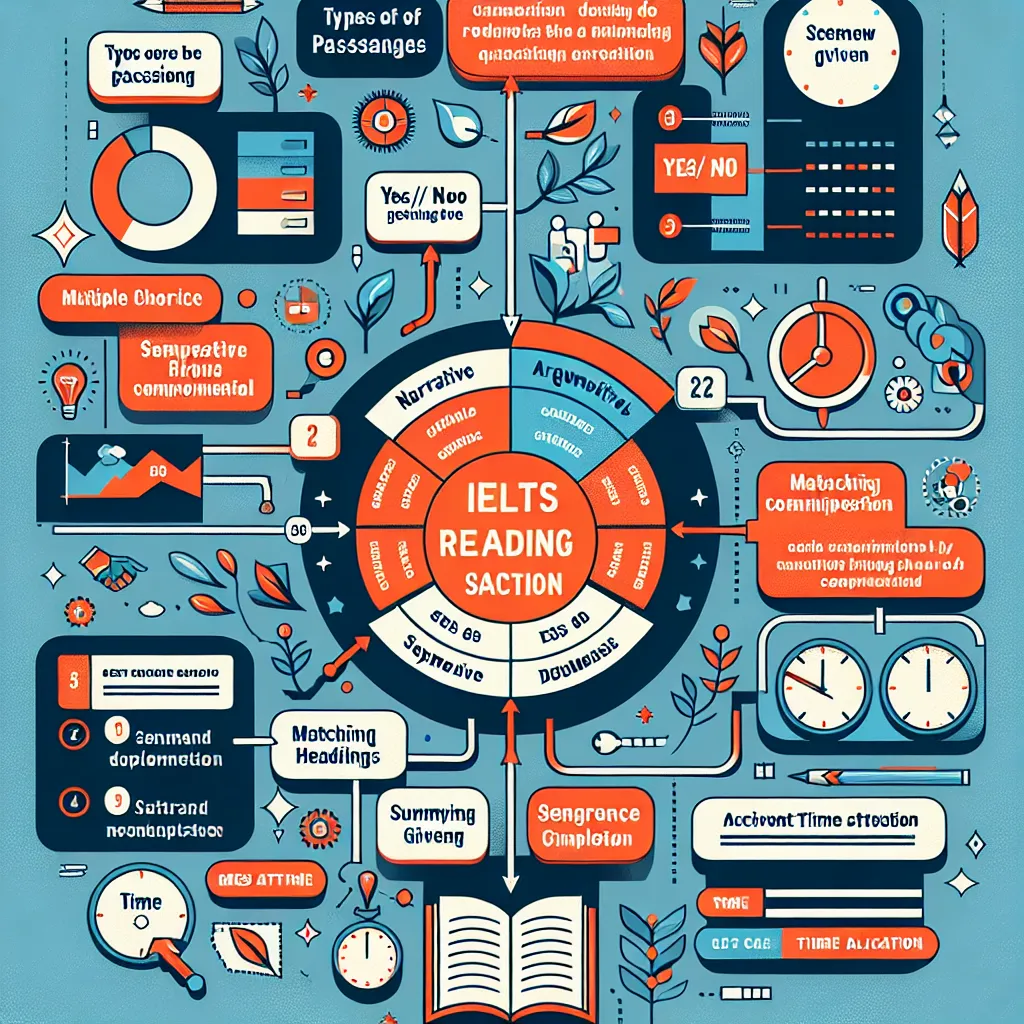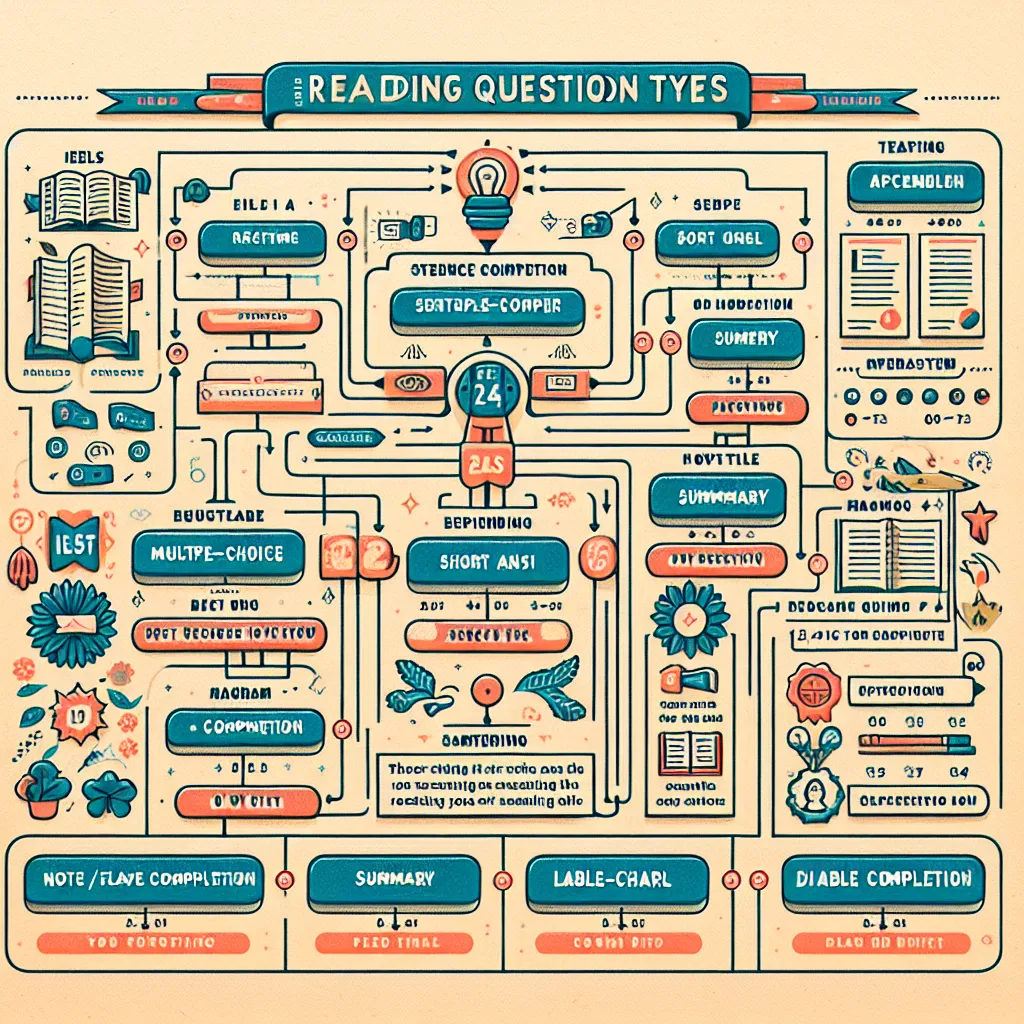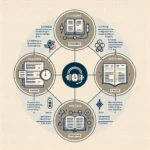Are you preparing for the IELTS exam and looking to enhance your reading skills? Improving your IELTS reading comprehension is crucial for achieving a high band score. In this comprehensive guide, we’ll explore effective strategies and practical tips to help you master the IELTS reading section.
Understanding the IELTS Reading Section
Before diving into improvement strategies, it’s essential to grasp the structure and requirements of the IELTS reading section. This part of the test consists of three passages of increasing difficulty, with a total of 40 questions to be answered in 60 minutes. The texts cover a range of topics and may include graphs, diagrams, or illustrations.
 IELTS Reading Section Overview
IELTS Reading Section Overview
Strategies to Enhance Your Reading Comprehension
1. Develop Skimming and Scanning Techniques
Skimming and scanning are vital skills for IELTS reading success. Skimming involves quickly reading through a text to get a general idea of its content, while scanning is searching for specific information.
To practice skimming:
- Read the first and last paragraphs thoroughly
- Focus on topic sentences (usually the first sentence of each paragraph)
- Pay attention to headings, subheadings, and any highlighted text
For effective scanning:
- Look for keywords related to the question
- Use your finger or a pencil to guide your eyes
- Practice with timed exercises to improve speed
2. Expand Your Vocabulary
A rich vocabulary is crucial for understanding complex texts in the IELTS reading section. Here are some ways to broaden your word bank:
- Read extensively across various topics (science, history, current affairs)
- Keep a vocabulary journal and review it regularly
- Use flashcards or vocabulary apps for daily practice
- Study word families and common collocations
3. Improve Your Reading Speed
Time management is critical in the IELTS reading test. To increase your reading speed:
- Practice timed reading exercises regularly
- Use the ‘chunking’ technique (reading groups of words instead of individual words)
- Avoid subvocalization (saying words in your head as you read)
- Set realistic goals and gradually increase your reading pace
4. Enhance Your Understanding of Different Question Types
Familiarize yourself with the various question formats in the IELTS reading test:
- Multiple choice
- True/False/Not Given
- Matching headings
- Sentence completion
- Summary completion
Practice each question type separately to develop specific strategies for tackling them efficiently.
 IELTS Reading Question Types
IELTS Reading Question Types
5. Practice Active Reading
Engage with the text actively to improve comprehension:
- Predict the content based on the title and first paragraph
- Ask yourself questions as you read
- Make mental summaries of each paragraph
- Connect new information to your existing knowledge
6. Improve Your Focus and Concentration
Maintaining concentration throughout the test is crucial. Try these techniques:
- Practice mindfulness or meditation to improve focus
- Take short breaks between practice sessions to refresh your mind
- Create a distraction-free study environment
- Gradually increase the duration of your reading sessions
7. Analyze Text Structure and Arguments
Understanding how texts are organized can help you navigate them more effectively:
- Identify the main idea and supporting details
- Recognize transition words and phrases
- Understand the author’s purpose and tone
- Practice summarizing key points in your own words
Common Pitfalls to Avoid
Be aware of these common mistakes when tackling the IELTS reading section:
- Spending too much time on difficult questions
- Not reading the instructions carefully
- Failing to manage time effectively
- Overlooking key information in the passage
- Bringing personal knowledge into answers instead of relying on the text
Next Steps: Putting It All Together
Now that you’ve learned these strategies, it’s time to put them into practice:
- Set a study schedule focusing on reading comprehension
- Use official IELTS practice materials to familiarize yourself with the test format
- Take full-length practice tests under timed conditions
- Review your mistakes and identify areas for improvement
- Seek feedback from a tutor or join a study group for additional support
Remember, improving your IELTS reading comprehension is a gradual process that requires consistent effort and practice. Stay motivated, track your progress, and celebrate small victories along the way.
By implementing these strategies and avoiding common pitfalls, you’ll be well on your way to achieving your desired band score in the IELTS reading section. Good luck with your preparation!


